Marine Life & Conservation
Will you go Fish Free this February?
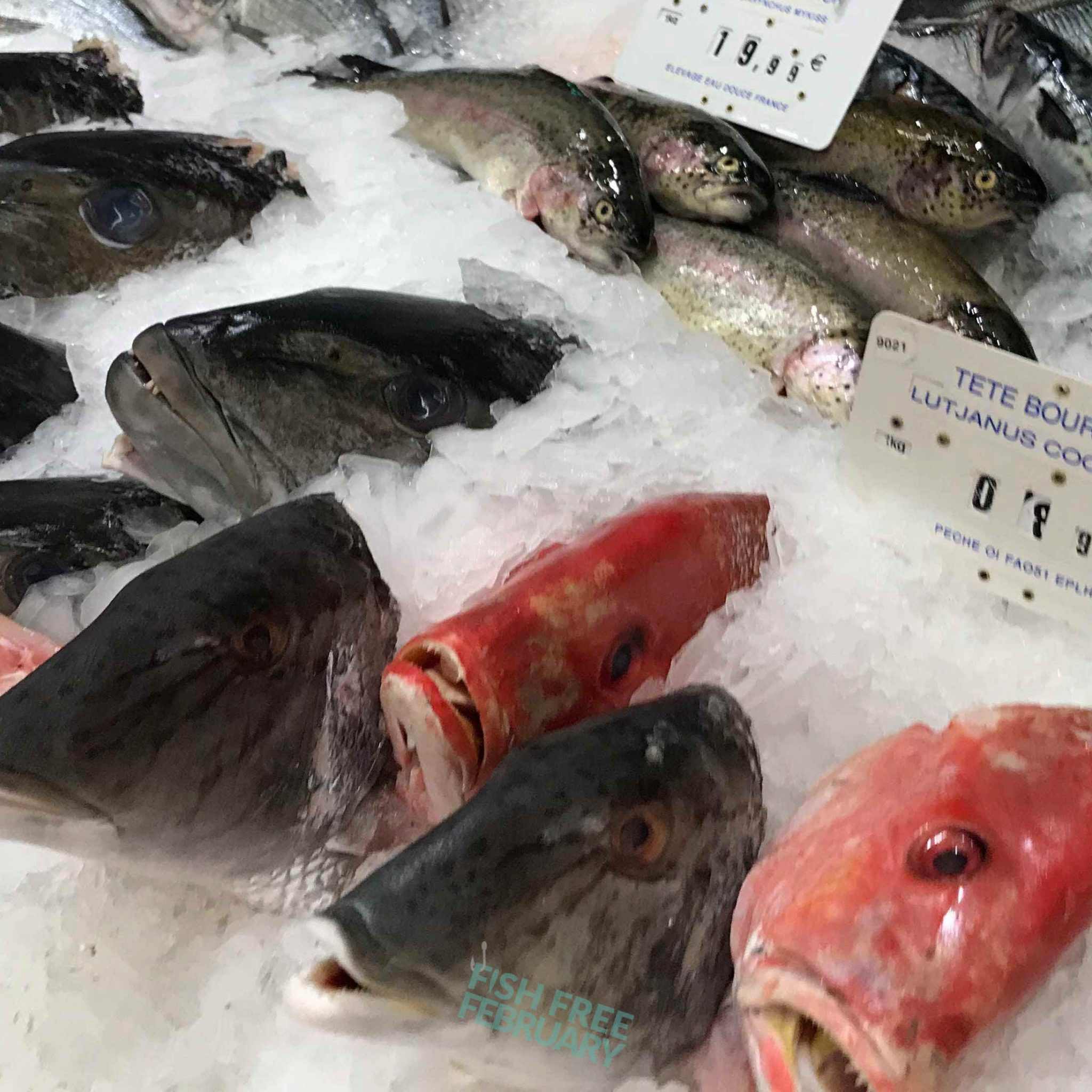
Marine biologist Simon Hilbourne and Oceans Festival UK are launching a new campaign called Fish Free February, challenging the public to protect our oceans by removing seafood from their diet for 29 days.
Fish Free February is a campaign organised by international marine conservationists to reduce our collective impact on the oceans and the life that they hold, in a simple and effective way. Throughout the month of February, #FishFreeFebruary will encourage people to discuss the wide range of issues associated with industrial fishing practices, putting the wellbeing of our oceans at the forefront of dietary decision-making.

Not all fishing practices are bad – well-managed, small-scale fishing that uses selective fishing gears can be sustainable. However, when it comes to the majority of our seafood, this is not the case. We mostly rely on industrial fisheries which often prioritise profit over the wellbeing of our planet, resulting in multiple environmental challenges. Fish Free February will shed light on these challenges, create wider discussion around these issues, and offer solutions.
So what are the problems with fishing?
Overfishing: We are taking more than our fair share of fish, so much in fact that populations can’t repopulate fast enough. 90% of global fish stocks are fished to their maximum or overfished with an estimated 1-2.7 trillion fish caught annually for human consumption. Compare that to the 63 billion mammals and birds killed each year for food and it becomes clear that there aren’t plenty more fish in the sea.
Plastic pollution: Discarded fishing nets make up 46% of the plastic in the Great Pacific Garbage Patch, far more than plastic bags or straws. This is when fishing gear is abandoned at sea. This might be due to breakages, losing items overboard and in some cases old or broken fishing gear is purposely dumped into the sea. Just because there is not fisherman attached, doesn’t mean those nets, hooks and lines aren’t still lethal. Large pieces of plastic pollution like fishing nets break down into microplastics which are then ingested by marine life. In 2018 a study found 100% of wild and shop-bought mussels to contain plastic.
Destructive fishing practices: Fishing often doesn’t just kill the species that you want to eat, bycatch and non-specific fishing methods (such as dynamite, long lines, trawlers, gill nets and electric pulse nets) mean that other species end up dead as well. Dolphins, sharks, turtles, corals and many other fish species – they’re all caught up in this mess as well.
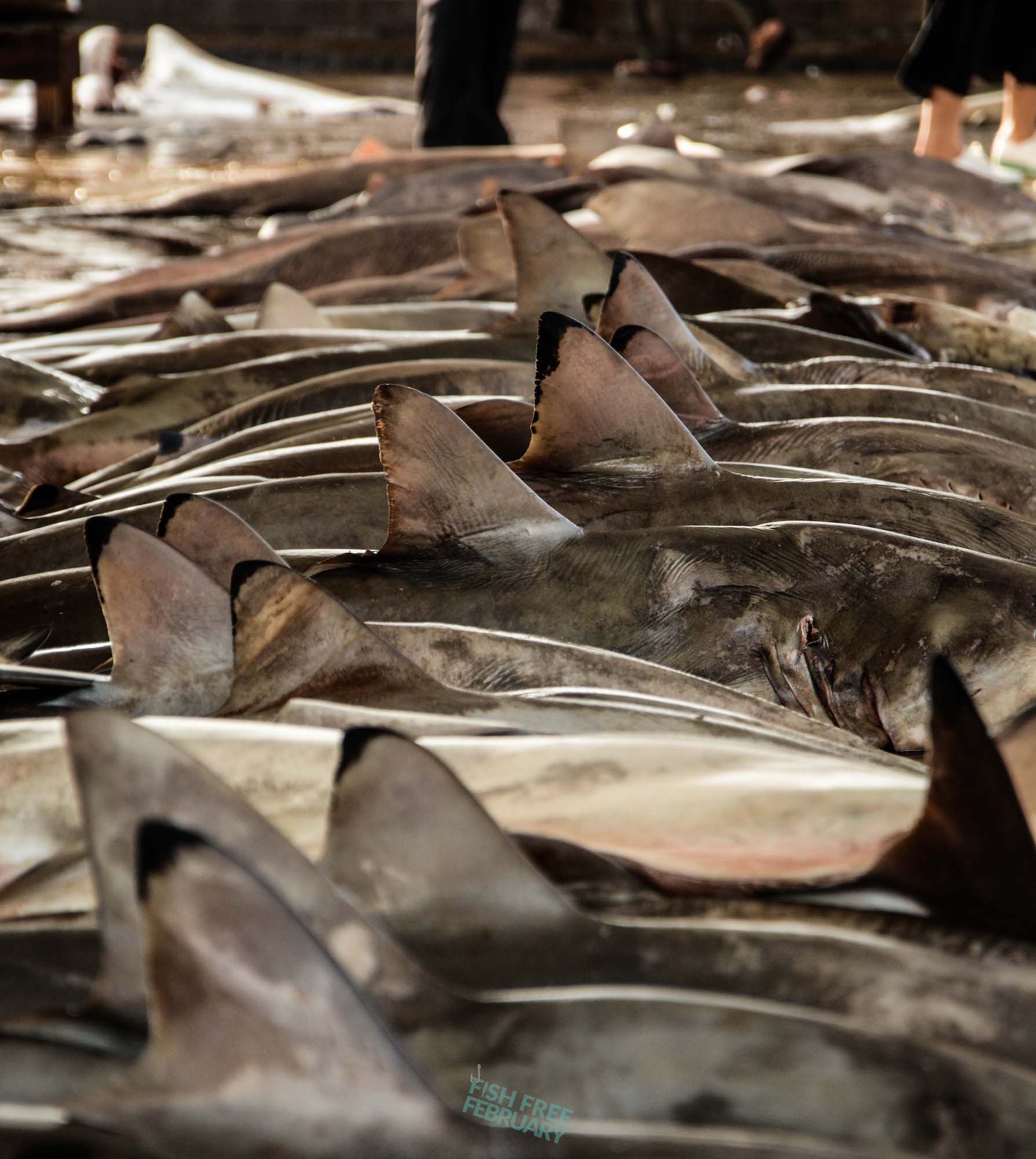
Mislabelling: That’s right, fish isn’t always what it says on the tin. A study by Oceana found that as much as one third of seafood samples in the US were not what they were labelled as in restaurants and stores. This can have huge implications on the environment and also human health, but ultimately it highlights that we need far more stringent regulation and monitoring in this industry.
Farmed fish (aquaculture): 40% of the seafood we eat is farmed, but creating seafood farms often involves destroying existing habitats and therefore has a high carbon footprint. Chemicals and diseases associated with seafood farming also impact the surrounding waters and eventually affect wild populations.
Food waste: The Scottish farmed salmon industry is highly wasteful, with around 20% of fish never reaching harvest due to mortalities and escapes during production, according to its own figures. If this level of waste remains unchecked, a large proportion of the wild fish sourced to feed its salmon is also being wasted.
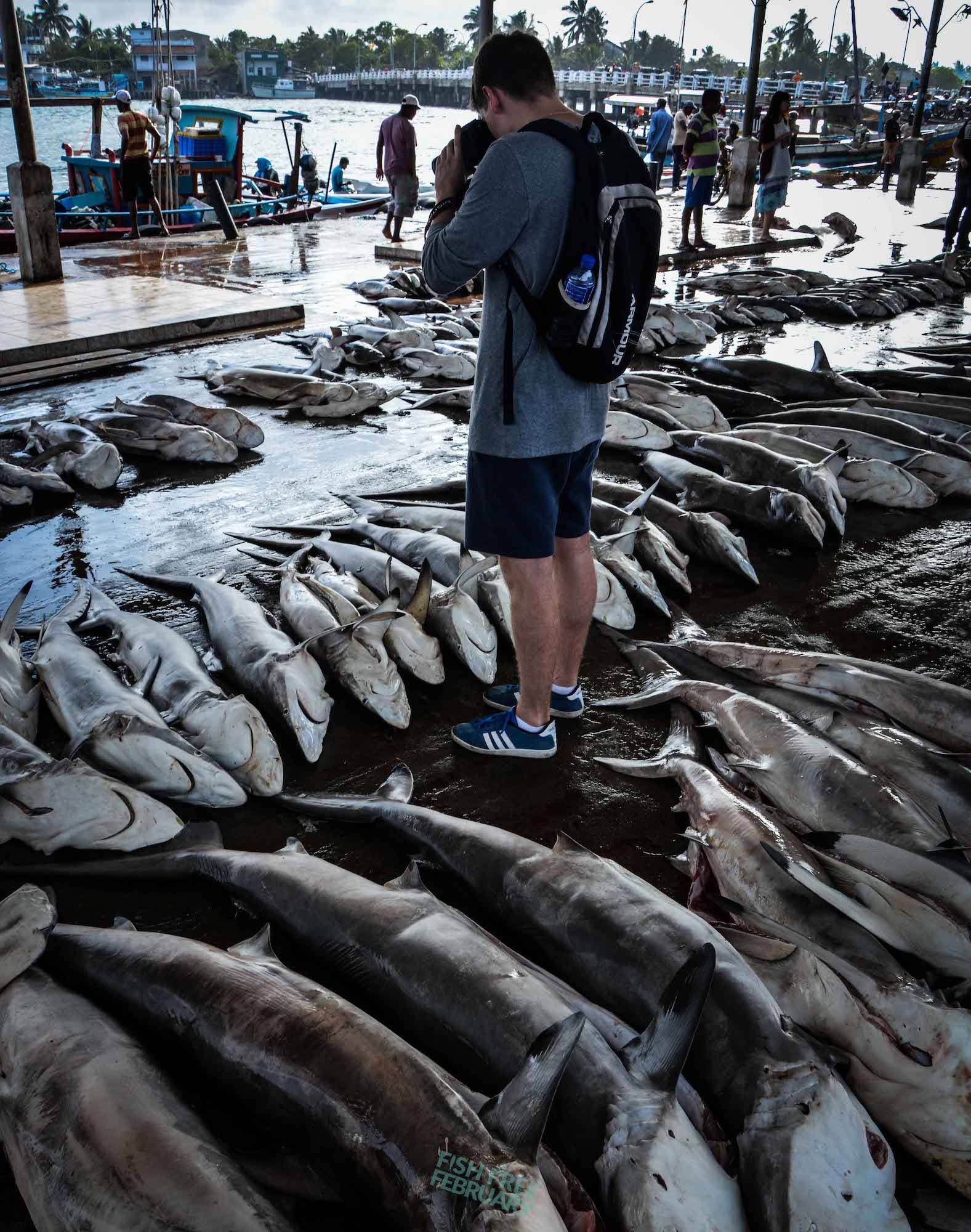
Human rights: In regions of the world such as South-East Asia, forced labour and human trafficking is rife within the fishing industry. It is very possible that the imported fish in our supermarkets has made its way from the sea to the shelves as a result of modern-day slavery.
Illegal fishing: Companies in the fishing industry don’t always follow the rules. As you might imagine, it can be fairly challenging to monitor the high-seas and currently illegal, unregulated and unreported fishing is widespread. This exacerbates the negative impact of all of the issues associated with industrial fishing and means that companies continue their dirty work and there is no justice for our oceans.
How will Fish Free February change any of that?
Fish Free February aims to result in one, or several, of the following outcomes:
Participants will…
- Commit to eradicating seafood from their diet for 29 days and focus on plant-based, sustainable alternative ways of eating.
- Consciously reduce the amount of seafood in their diet to limit the degree of their personal impact. If continuing to consume seafood after February, people are encouraged to purchase items that are certified by an independent sustainable fishing moderator, such as the Marine Stewardship Council. People can also focus on trying to purchase seafood from small-scale, local and sustainable fisheries.
- Increase the discussion surrounding seafood and fishing practices, to increase the level of knowledge in public consciousness.
- Ask questions about where the fish they are being sold or served came from. Holding retailers and restaurants responsible for the products they sell will put pressure on them to source seafood from sustainable fisheries.
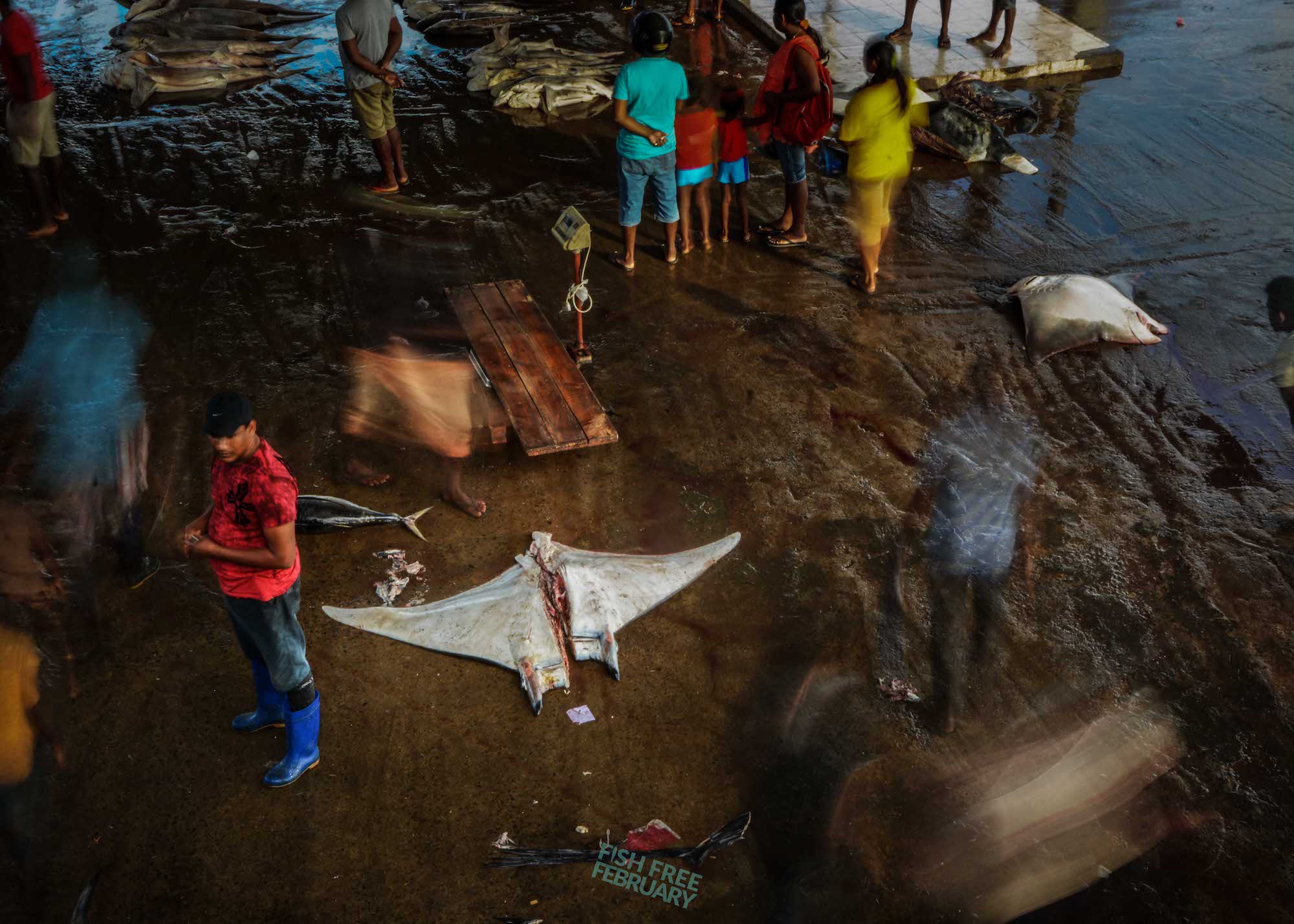
#FishFreeFebruary will send a clear message of protest against current standards of fishing and seafood farming. The ultimate goal is to generate a shift in the fishing industry and encourage a radical reduction in seafood consumption, opting for sustainable practices when fish is purchased. Additionally, Fish Free February will strengthen the connection that the public have with their food and to drive them to thoroughly consider where it has come from and how it has made its way to their plate.
“The fact of the matter is humans are taking far too many fish and other marine species from the sea. We simply must reduce the number of fish being caught. The best way to do that is to stop or greatly reduce eating seafood.” – Simon Hilbourne, Fish Free February Founder.
“We have the opportunity to tackle overfishing, plastic pollution and ecosystem collapse through the very simple act of eating less fish. If you weren’t quite able to commit to Veganuary or want another opportunity to do your part for the planet, please join the Fish Free February challenge!” – Jasmine Tribe, Founder of Oceans Festival UK.
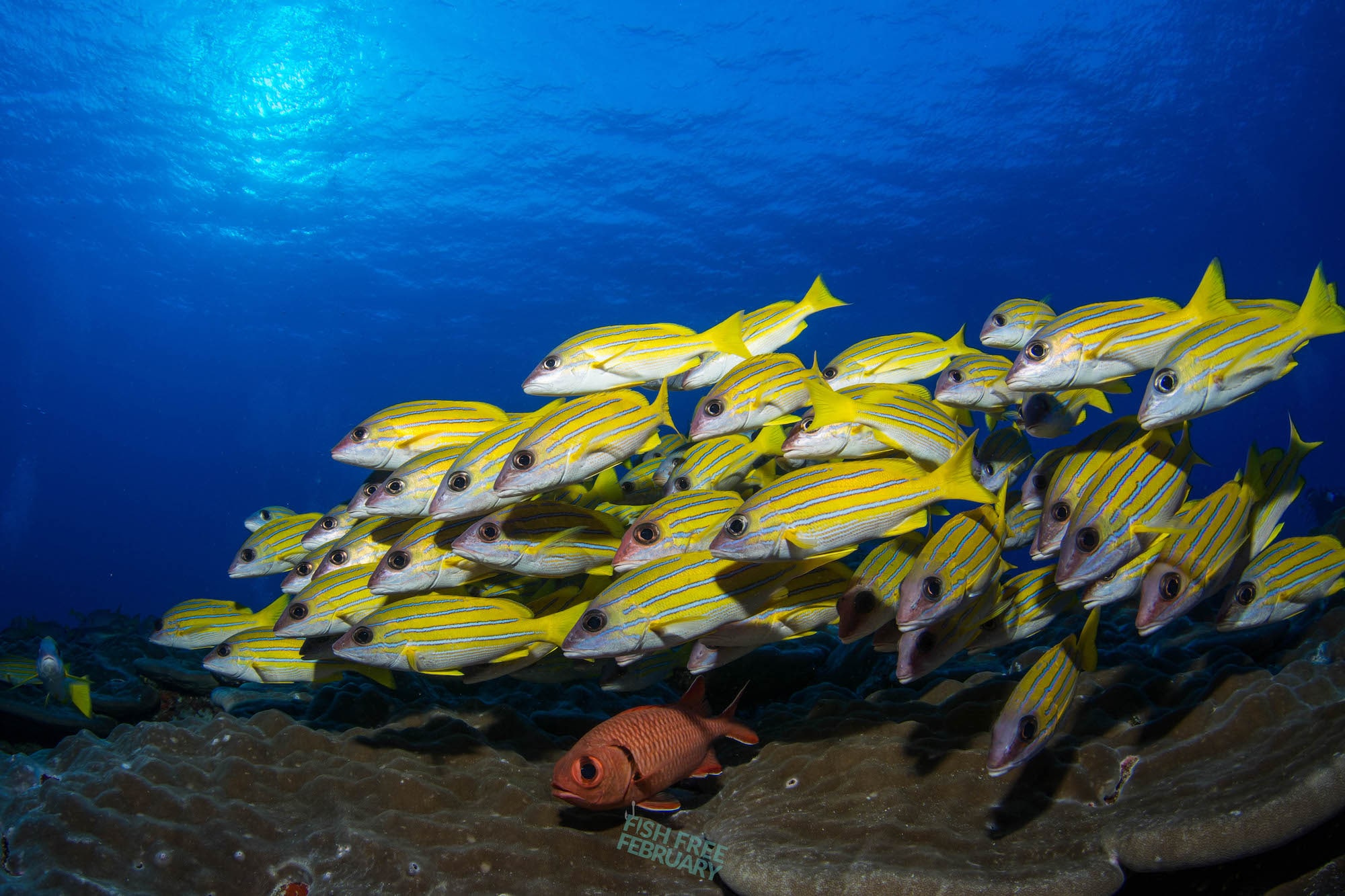
“The ecological balance of our oceans is under huge stress from overfishing and I’ll be championing #FishFreeFebruary to highlight this. With such a vast amount of ocean plastic coming from the fishing industry this is also a great opportunity to highlight the ‘hidden’ plastic pollution in our food chain.” – Natalie Fee, Founder of City to Sea and author of ‘How to Save the World for Free’.
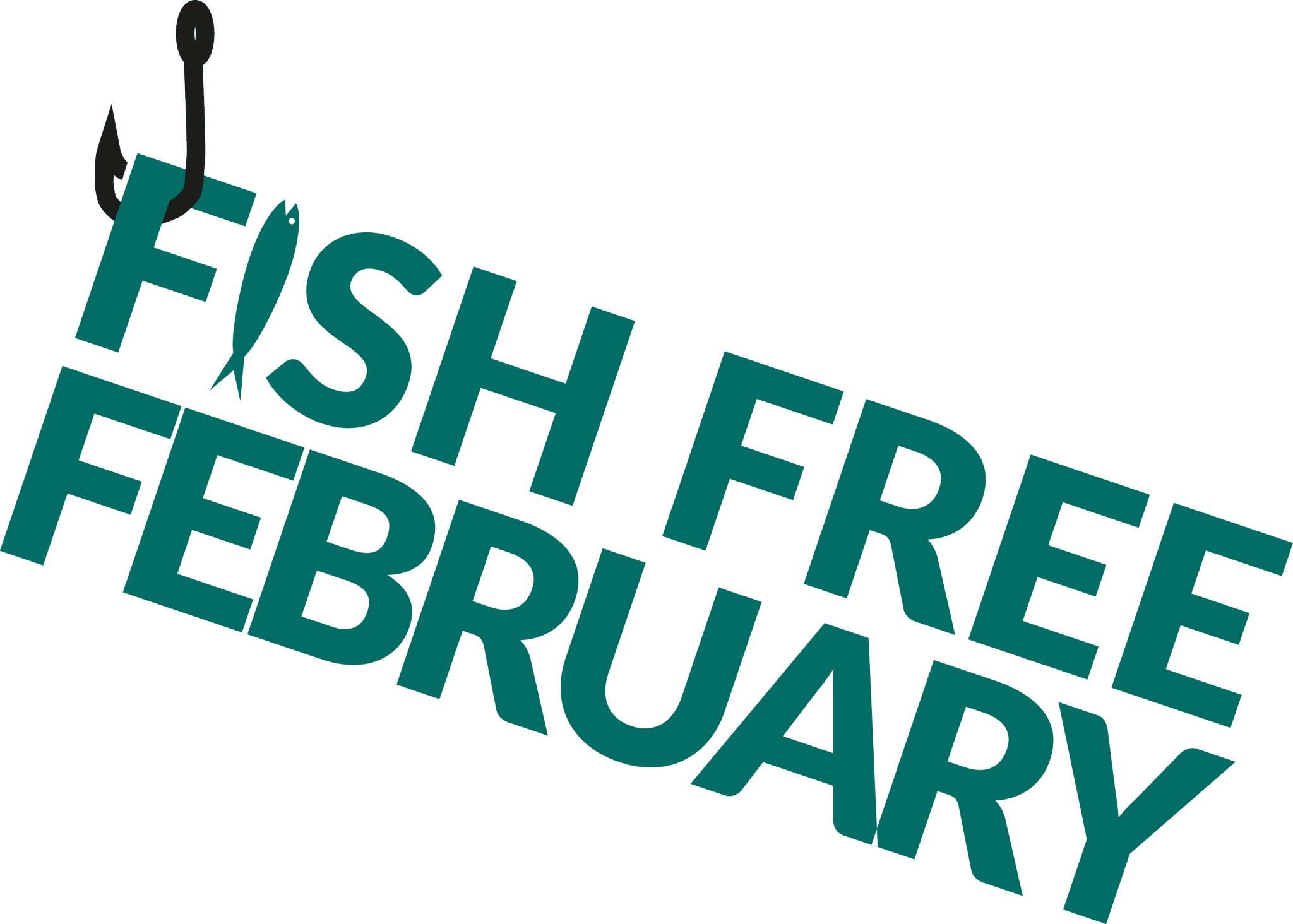 Pledge your support to go Fish Free this February at: www.fishfreefebruary.com/pledge.
Pledge your support to go Fish Free this February at: www.fishfreefebruary.com/pledge.
Images: Simon Hilbourne
Marine Life & Conservation
Leading UK-based shark conservation charity, the Shark Trust, is delighted to announce tour operator Diverse Travel as a Corporate Patron

 Corporate Patrons provide a valuable boost to the work of The Shark Trust. The Trust team works globally to safeguard the future of sharks, and their close cousins, the skates and rays, engaging with a global network of scientists, policymakers, conservation professionals, businesses and supporters to further shark conservation.
Corporate Patrons provide a valuable boost to the work of The Shark Trust. The Trust team works globally to safeguard the future of sharks, and their close cousins, the skates and rays, engaging with a global network of scientists, policymakers, conservation professionals, businesses and supporters to further shark conservation.
Specialist tour operator Diverse Travel has operated since 2014 and is committed to offering its guests high quality, sustainable scuba diving holidays worldwide. Working together with the Shark Trust will enable both organisations to widen engagement and encourage divers and snorkellers to actively get involved in shark conservation.
“Sharks are truly at the heart of every diver and at Diverse Travel, we absolutely share that passion. There is nothing like seeing a shark in the wild – it’s a moment that stays with you forever!” says Holly Bredin, Sales & Marketing Manager, Diverse Travel.
“We’re delighted to celebrate our 10th year of business by becoming a Corporate Patron of the Shark Trust. This is an exciting partnership for Diverse and our guests. We will be donating on behalf of every person who books a holiday with us to contribute towards their vital shark conservation initiatives around the world. We will also be working together with the Trust to inspire divers, snorkellers and other travellers to take an active role – at home and abroad – in citizen science projects and other activities.”
Paul Cox, CEO of The Shark Trust, said:
“It’s an exciting partnership and we’re thrilled to be working with Diverse Travel to enable more divers and travellers to get involved with sharks and shark conservation. Sharks face considerable conservation challenges but, through collaboration and collective action, we can secure a brighter future for sharks and their ocean home. This new partnership takes us one more valuable step towards that goal.”
For more information about the Shark Trust visit their website here.
For more about Diverse Travel click here.
Marine Life & Conservation
Shark Trust Asks Divers to help with Shark Sightings this Global Citizen Science Month

 Whether you are stuck for ideas of what to do with the kids or are off on the dive trip of your dreams. You can get involved in Citizen Science Month and help the Shark Trust by providing vital data about sharks are rays both close to home and further afield.
Whether you are stuck for ideas of what to do with the kids or are off on the dive trip of your dreams. You can get involved in Citizen Science Month and help the Shark Trust by providing vital data about sharks are rays both close to home and further afield.
In addition to reporting the sharks and rays you see on your dives, the eggcases you find on the beach, the Shark Trust is looking for some specific data from divers who are asked to report any Oceanic Whitetip and Basking Sharks.
Oceanic Whitetip Sharks
The Shark Trust are looking specifically for Oceanic Whitetip Shark sightings over the coming weeks and months. So, if you are diving anywhere in the world, please report your sightings via the website or app.
Website: https://recording.sharktrust.org/
App: Search The Shark Trust in your app store
The Oceanic Whitetip. Known for their incredibly long dorsal and pectoral fins, this species was once the most abundant oceanic-pelagic species of shark on the planet.
Large and stocky, they are grey or brown above, and white below and famous for their huge rounded first dorsal fin and paddle-like pectoral fins. The fins also highly prized within the shark fin trade. Whilst they are mostly solitary, Oceanic Whitetips do occasionally hunt in groups.
An inquisitive species, they were easy prey for fisheries. Combined with their low reproductive rate, they were inevitably at high risk of population depletion. And declines of up to 99% have been reported in certain sea areas. They are listed as Critically Endangered on the IUCN Redlist (2019).
Conservation efforts to discourage further declines include listing on CITES Appendix II and CMS Appendix I. They’re also the only species prohibited from take by all the Tuna RFMOs (Regional Fisheries Management Organisations). However, these measures do not mean that Oceanic Whitetips are not still caught – whether targeted or as bycatch – in some parts of the world. With populations declining at such a high rate, effective implementation of management measures is essential to ensure that the species can recover.
If you are lucky enough to get an image of an Oceanic Whitetip and you record your sighting on the Shark Trust app or website YOU CAN WIN! All images submitted with sightings, that also give consent to use in conservation messaging, will be in with a chance to win an Oceanic Whitetip T-shirt and mug. The competition will run until the end of “Shark Month” in July – so keep those sightings (and images) coming in.
Basking Sharks
Basking Shark (Cetorhinus maximus) season is upon us, and the Shark Trust is asking everyone to keep an eye out for these majestic giants over the summer months. If you see any, you can record your sighting to the Basking Shark Sightings database.
Each year, these mighty fish return to British waters to feed on plankton. You may see one, (or a few if you’re really lucky) from around April-October. They can be seen feeding at the surface of the water, where they look like they’re basking in the sun. Thus, their name!
Sighting hotspots around the British Isles include southwest England, Isle of Man, north coast of Ireland, and western Scotland. The Sea of the Hebrides is the most prolific sightings area in Scotland, but they have been spotted all around the coast and have even ventured into some of the sea lochs. The Shark Trust has received thousands of sightings since the Basking Shark project began, but more data is needed to truly understand what is going on with population numbers and distribution. You can help by recording your sightings this summer.
Great Eggcase Hunt
The Shark Trust has an Easter Egg Hunt with a difference for you to try. Take part in the Great Eggcase Hunt and get involved with a big citizen science project that helps shark, ray and skate conservation. And it’s an enjoyable activity for all the family.
The Shark Trust also want snorkellers and divers to record their underwater eggcase findings. Underwater records help pinpoint exactly where sharks and skates are laying their eggs and can help link to beach records. Learning the depth and substrate that they lay on also helps better understand the species.
Find out more: https://www.sharktrust.org/great-eggcase-hunt
Whether you are diving, snorkelling or exploring on the beach you can take part in Citizen Science Month and get actively involved in shark and ray conservation. Find out more: www.sharktrust.org
-

 News3 months ago
News3 months agoHone your underwater photography skills with Alphamarine Photography at Red Sea Diving Safari in March
-

 News2 months ago
News2 months agoCapturing Critters in Lembeh Underwater Photography Workshop 2024: Event Roundup
-

 Marine Life & Conservation Blogs2 months ago
Marine Life & Conservation Blogs2 months agoCreature Feature: Swell Sharks
-

 Blogs1 month ago
Blogs1 month agoMurex Resorts: Passport to Paradise!
-
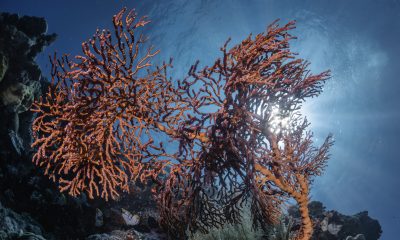
 News3 months ago
News3 months agoDive into Adventure with Photo Pro Paul Duxfield in North Sulawesi this October
-

 Gear News3 months ago
Gear News3 months agoBare X-Mission Drysuit: Ideal for Both Technical and Recreational Divers
-

 Gear Reviews2 months ago
Gear Reviews2 months agoGear Review: Oceanic+ Dive Housing for iPhone
-

 Blogs2 months ago
Blogs2 months agoDiver Discovering Whale Skeletons Beneath Ice Judged World’s Best Underwater Photograph









